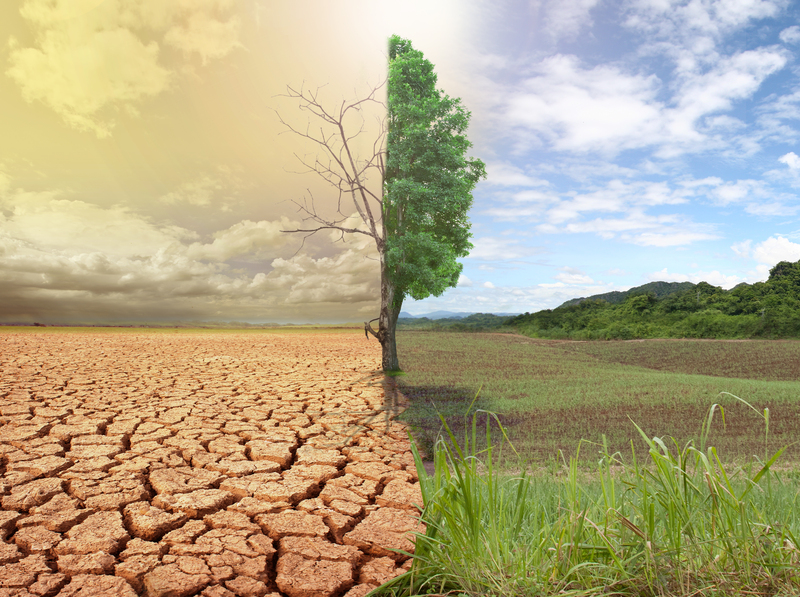Master the Essentials of Plastic Waste Reduction: A Comprehensive Guide
Plastic pollution is a significant threat facing our planet. From polluted oceans to overflowing landfills, reducing plastic waste is essential to preserving our environment. In this comprehensive guide, we will explore effective strategies and insights to help you master the essentials of plastic waste reduction. Whether you are an individual, business owner, or policymaker, this article offers actionable advice and in-depth knowledge on how to minimize your plastic footprint.

Understanding the Importance of Plastic Waste Reduction
Plastic has become ubiquitous due to its convenience and versatility. However, its resilience means it often outlasts its utility, remaining in ecosystems for hundreds of years. Reducing plastic waste is not only an environmental imperative but also a societal responsibility.
- Plastic production is projected to double by 2050 if current trends continue.
- An estimated 8 million tons of plastic end up in the oceans annually.
- Microplastics have been found in the food and water we consume.
By mastering the essentials of plastic waste management, we can help curb pollution, protect wildlife, and contribute to a cleaner, healthier planet.
The Sources of Plastic Waste
To effectively reduce plastic waste, it is critical to recognize where it comes from. Common sources include:
- Single-use plastics: Items like straws, bags, cutlery, and wrappers are often used once before being discarded.
- Packaging materials: A substantial portion of consumer goods are wrapped in unnecessary plastic.
- Household products: Everyday household goods, from detergent bottles to toiletries, often use plastic containers.
- Industrial and commercial waste: Manufacturing and distribution processes frequently result in plastic byproducts.
By identifying these sources, individuals and organizations can target areas for effective plastic waste minimization.
Essential Strategies to Reduce Plastic Waste
1. Embrace the 5 Rs: Refuse, Reduce, Reuse, Repurpose, Recycle
- Refuse: Politely decline single-use plastics wherever possible. Say no to plastic cutlery, bags, and straws.
- Reduce: Purchase items with minimal plastic packaging. Choose bulk goods and shop locally to avoid unnecessary wrapping.
- Reuse: Opt for reusable bags, bottles, and containers. Prioritize durable products over disposables.
- Repurpose: Find creative ways to give plastic items a second life before disposal.
- Recycle: Follow local recycling guidelines and support products made from recycled materials.
The 5 Rs form the foundation for anyone aiming to master plastic waste reduction. Each step is vital for comprehensive waste management.
2. Switch to Sustainable Alternatives
Thanks to innovation, there are now many viable alternatives to traditional plastics. Consider the following substitutions:
- Bamboo and metal straws instead of plastic ones
- Glass or stainless steel water bottles in place of disposable bottles
- Cloth shopping bags instead of plastic bags
- Compostable plates and cutlery for events and gatherings
- Packed lunches in silicone or glass containers, not plastic wrap
By making these simple switches, you can significantly cut down on your plastic waste footprint.
3. Support Zero-Waste and Circular Economy Initiatives
Zero-waste living and a circular economy focus on reusing, repairing, and recycling materials to keep them in use for as long as possible. Supporting local zero-waste stores and circular businesses helps promote a sustainable product lifecycle. These initiatives provide refill stations, package-free goods, and guidance on how to reduce plastic waste at home and beyond.
4. Encourage Corporate and Community Responsibility
While individual action is important, systemic change is necessary for large-scale plastic waste reduction. Advocate for:
- Corporate responsibility: Urge businesses to minimize plastic packaging and implement recyclable or compostable alternatives.
- Community cleanups: Join or organize local cleanup events to remove plastic from natural areas and raise awareness.
- Education campaigns: Spread the word about the dangers of plastic pollution and ways to reduce it.
*Collaborative efforts between businesses, communities, and governments are essential to achieve meaningful plastic reduction.*
Practical Tips for Everyday Plastic Reduction
In the Kitchen
- Use beeswax wraps or silicone lids instead of plastic wrap.
- Buy loose produce and avoid pre-packaged fruits and vegetables.
- Choose reusable baking matts instead of single-use parchment or plastic sheets.
Shopping Habits
- Bring your own bags, containers, and jars to the store.
- Support markets that prioritize plastic-free packaging.
- Buy in bulk to reduce packaging waste.
Personal Care
- Switch to bar soap and shampoo instead of bottled products.
- Use reusable razors rather than disposable ones.
- Look for bamboo toothbrushes and refillable deodorants.
On the Go
- Carry a reusable water bottle and coffee cup.
- Pack utensils and reusable straws to avoid disposables.
- Say no to single-use plastics at restaurants and cafes.
Understanding Recycling: Challenges and Best Practices
Recycling is a key element in the battle against plastic waste. However, misconceptions and improper recycling can do more harm than good. To genuinely *master the essentials of plastic waste reduction*, it's important to recycle effectively.
Challenges in Plastic Recycling
- Contamination: Food residue and mixing different types of plastics make recycling difficult.
- Limited recycling capabilities: Not all plastics are recyclable; many facilities only accept certain types.
- Recycling myth: Only about *9% of plastic waste* ever gets recycled due to complex sorting and processing needs.
Best Practices for Effective Recycling
- Rinse containers before recycling to remove food and residue.
- Learn your community's recycling codes and only recycle accepted items.
- Avoid "wishcycling"--placing non-recyclable items in the bin, hoping they'll be recycled.
- Support businesses and products made from recycled plastics.
*Proper recycling is crucial in reducing plastic waste and ensuring materials can be reused in the future.*
Innovations and Future Trends in Plastic Waste Reduction
Technology and innovation are driving exciting advances in the quest to combat plastic waste:
- Biodegradable plastics: Made from natural materials, these break down more quickly than traditional plastics.
- Advanced recycling techniques: Innovations like chemical recycling can process plastics that currently cannot be recycled.
- Plastic-eating microbes: Scientists are developing bacteria and enzymes that can degrade plastic efficiently.
- Smart packaging: Companies are designing packaging that uses less material and is fully recyclable or compostable.
By staying informed about these trends and supporting innovation, we can help shape a future with less plastic waste.
The Role of Policy and Legislation in Reducing Plastic Waste
While personal actions are impactful, systemic change is often driven by policy. Governments around the world are enacting legislation aimed at curbing plastic pollution, such as:
- Bans on single-use plastic bags and straws
- Extended producer responsibility (EPR) laws, requiring manufacturers to manage the disposal of their products
- Deposit return schemes for bottles and cans
- Incentives for businesses to adopt sustainable practices
Support and advocacy for these policies are crucial for achieving large-scale plastic waste reduction.
Educating the Next Generation
Children and young people will inherit the environmental challenges we face. Prioritizing education about plastics and pollution ensures that future generations will value and engage in plastic waste reduction. Some ways to instill these lessons include:
- Hands-on activities like waste audits and cleanups
- Incorporating sustainability and environmental curriculums in schools
- Encouraging creative projects, such as upcycling plastic waste into art
*Empowering young people is key to creating lasting change and a sustainable future.*

Frequently Asked Questions (FAQs) About Plastic Waste Reduction
Why is plastic waste reduction essential?
Plastic pollution threatens wildlife, contaminates food and water supplies, and contributes to climate change. Reducing plastic waste helps protect ecosystems, conserve resources, and support public health.
Can biodegradable plastics solve the problem?
While promising, biodegradable plastics are not a complete solution. Many require specific conditions to break down and can still cause harm if not disposed of properly.
How much impact can one person make against plastic waste?
Every action counts. Small changes, when multiplied across communities, can drive significant reductions in plastic use and inspire broader change.
Conclusion: Take the First Step Toward Plastic Waste Reduction
To master the essentials of plastic waste reduction, it helps to remember that every decision, no matter how small, contributes to a larger impact. By refusing single-use plastics, embracing sustainable alternatives, recycling responsibly, supporting policy, and educating others, we can collectively drive transformative change.
Start today: Identify one area in your daily life where you can cut back on plastic waste, and commit to making that change. Share your journey with friends and family to spread awareness and inspire participation. The future of our planet depends on the steps we take now!
Together, we can build a cleaner, greener world--one less piece of plastic at a time.